Are you considering leaving a lasting impact on your favorite cause? Writing a legacy gift intention letter can be a meaningful way to express your commitment and ensure your values endure beyond your lifetime. This simple yet powerful gesture not only supports the future of an organization you cherish, but it also inspires others to follow in your footsteps. Ready to learn how to craft the perfect letter for your legacy gift? Let's dive in!

Donor's Personal Information
Legacy gifts serve as a meaningful way for individuals to leave a lasting impact on organizations and causes they care about. Donor's personal information includes full name, mailing address, email address, and phone number, which are essential for the organization to establish a connection and communicate intentions. This information often supports planned giving options, such as bequests, charitable annuities, or trusts, ensuring that the legacy gift aligns with the donor's philanthropic goals. Furthermore, accurate documentation of personal information aids in fulfilling legal requirements and honoring the donor's wishes upon their passing.
Statement of Intent for Legacy Gift
Legacy gifts represent a meaningful commitment to supporting charitable organizations, ensuring continued funding for essential programs and services. A legacy gift, also known as a bequest, can take various forms, including cash, property, or stocks. Many individuals consider designating a portion of their estate for causes they are passionate about, such as education, healthcare, or cultural preservation. Organizations, such as nonprofit foundations, often benefit from these gifts, allowing them to expand their reach and impact. Such intentions can be formalized through a Statement of Intent, outlining the specific details of the gift and the intended purpose, creating a lasting legacy that resonates through generations. Donors are encouraged to seek legal and financial advice to ensure their wishes are honored and to understand the tax implications of their generosity.
Designation of Funds or Assets
Legacy gifts often serve as a lasting testament to the values and passions of individuals, providing crucial support for organizations. A bequest, such as a monetary gift or property, can significantly benefit nonprofits, educational institutions, or community projects. Clear designation of funds or assets ensures that contributions align with the donor's wishes, often indicating specific purposes like scholarships, program funding, or endowment enhancements. Accurate documentation of these intentions fosters transparency and accountability, allowing organizations to honor the legacy of donors, such as prominent philanthropists or local community members. This thoughtful commitment can empower future generations and sustain vital initiatives long into the future.
Legal and Tax Considerations
Legacy gifts often require careful attention to legal and tax implications that can impact both the donor and the recipient organization. Estate planning, including wills and trusts, must be properly structured to ensure that assets, such as real estate or stocks, are transferred as intended. Tax benefits, including potential estate tax deductions, can arise from charitable bequests. Understanding the Internal Revenue Code, specifically sections related to charitable contributions (such as 170), is crucial for maximizing tax advantages. Consulting with an estate planning attorney or a tax advisor can provide essential guidance on compliance with state laws and federal regulations while ensuring that your philanthropic goals are fulfilled effectively.
Contact Information for Estate Planning
Legacy gifts can significantly impact charitable organizations, ensuring sustainability for vital programs and services. Individuals considering such gifts often utilize estate planning to allocate funds, providing financial support to causes they care about after their passing. Clear contact information plays a crucial role in this process. Estate planners, financial advisors, or legal experts should be informed of the donor's intentions concerning specific organizations, such as local hospitals, educational institutions, or community foundations. Essential documents include wills, trusts, and beneficiary designations that outline charitable contributions. By maintaining accurate records and communication channels, donors can facilitate smooth transitions and fulfill their philanthropic goals effectively.
Letter Template For Legacy Gift Intention Samples
Letter template of legacy gift intention for arts and culture nonprofits
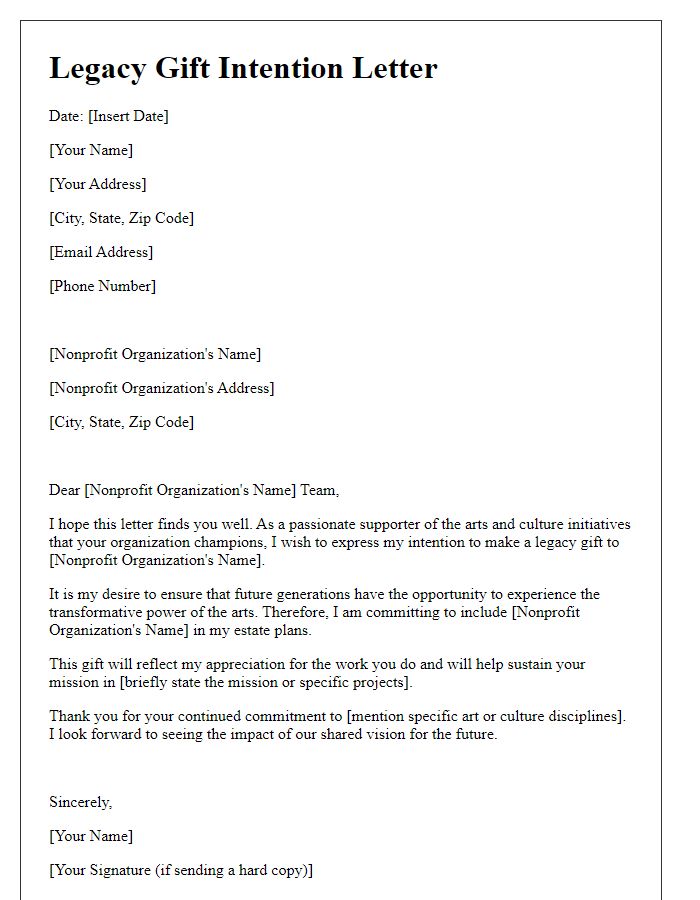
Letter template of legacy gift intention for animal welfare organizations


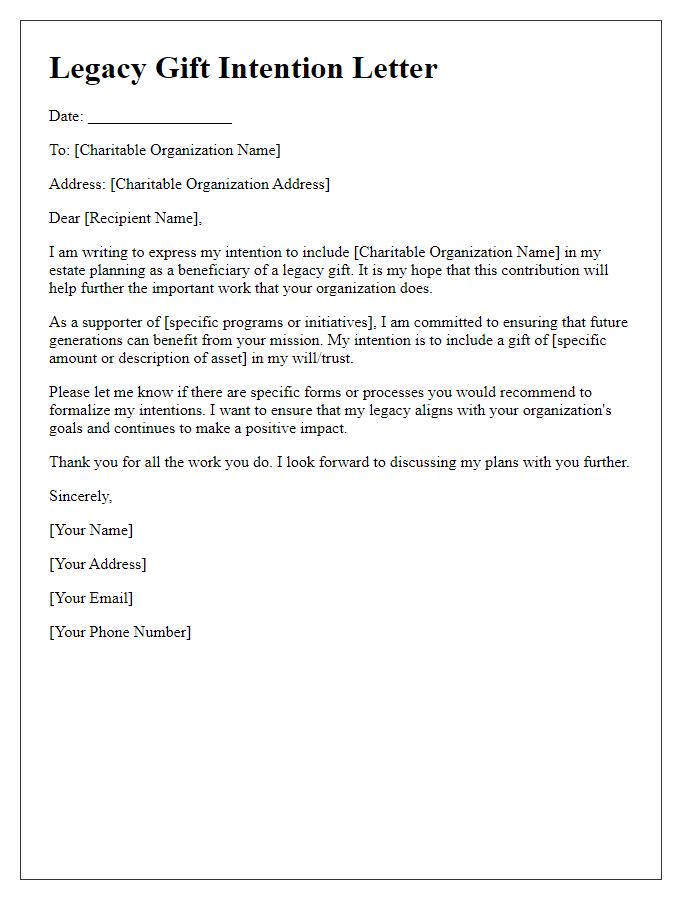
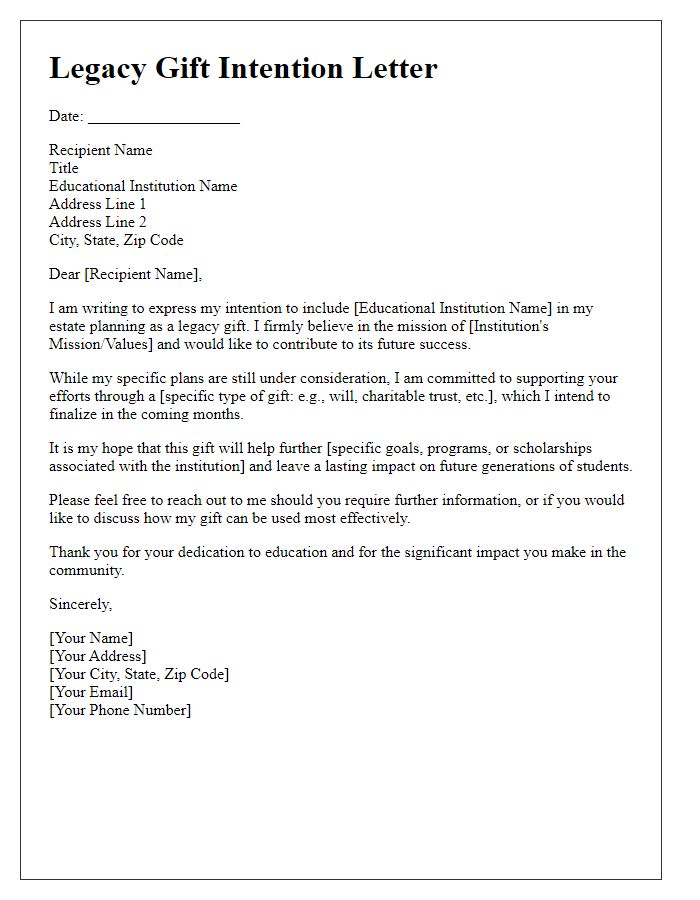
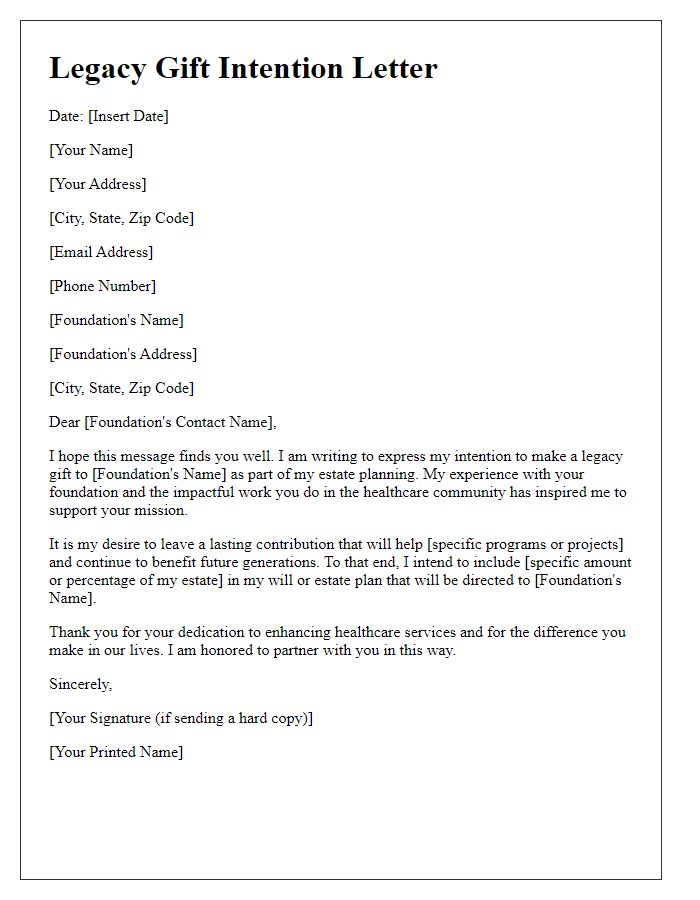
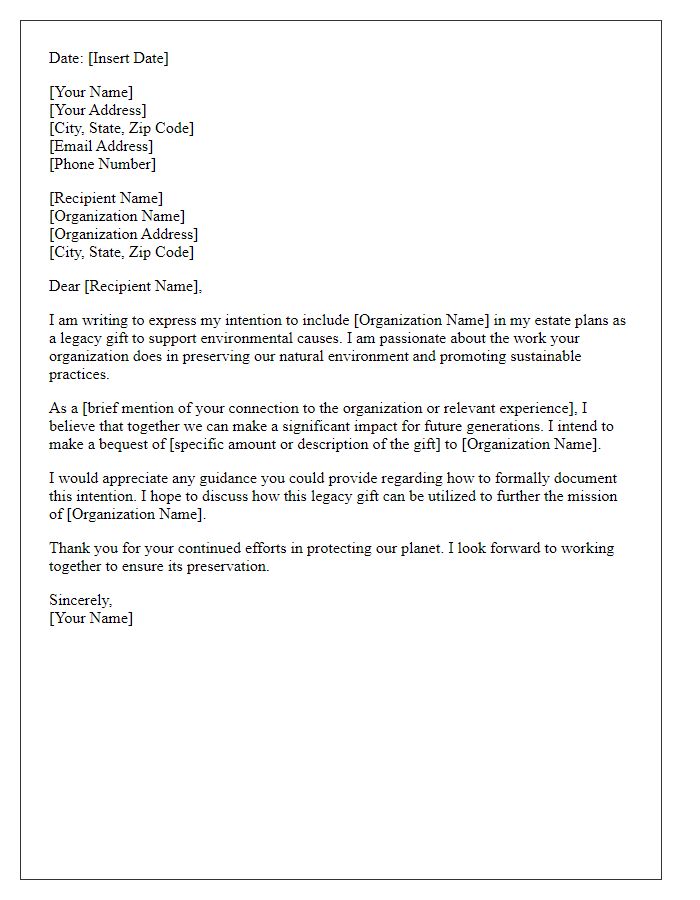
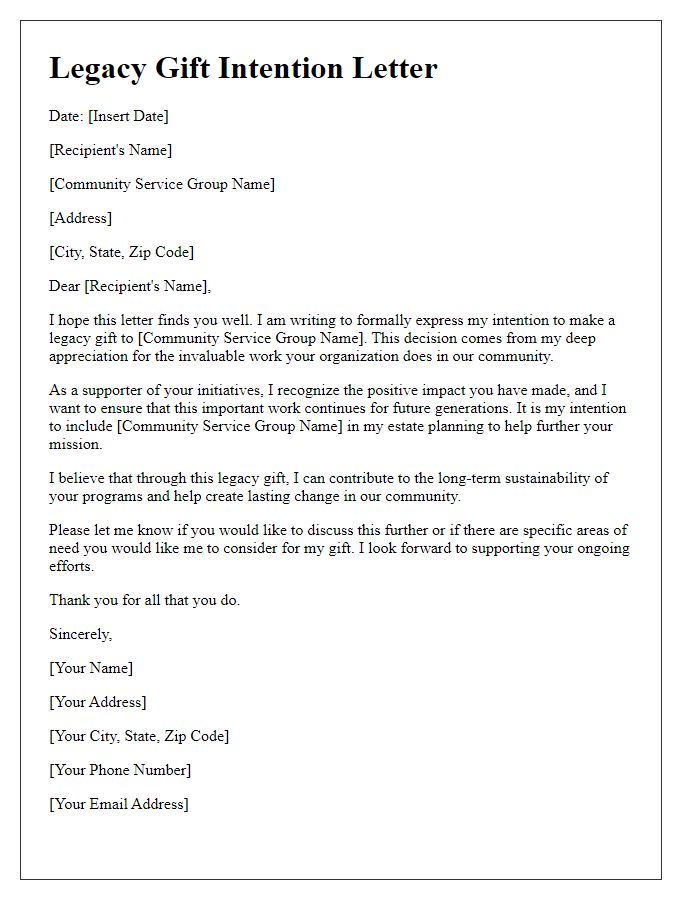
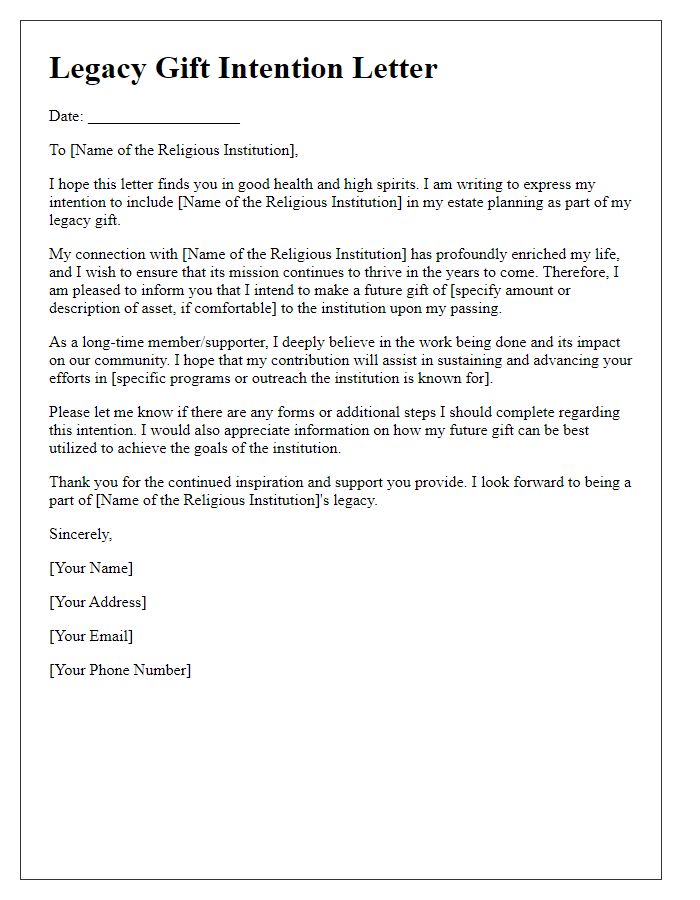
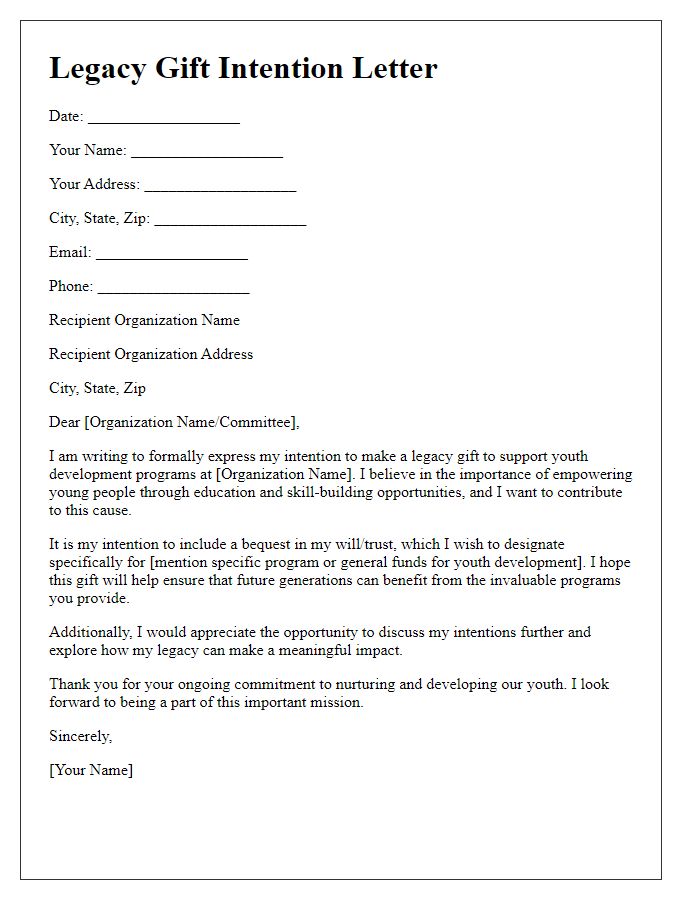
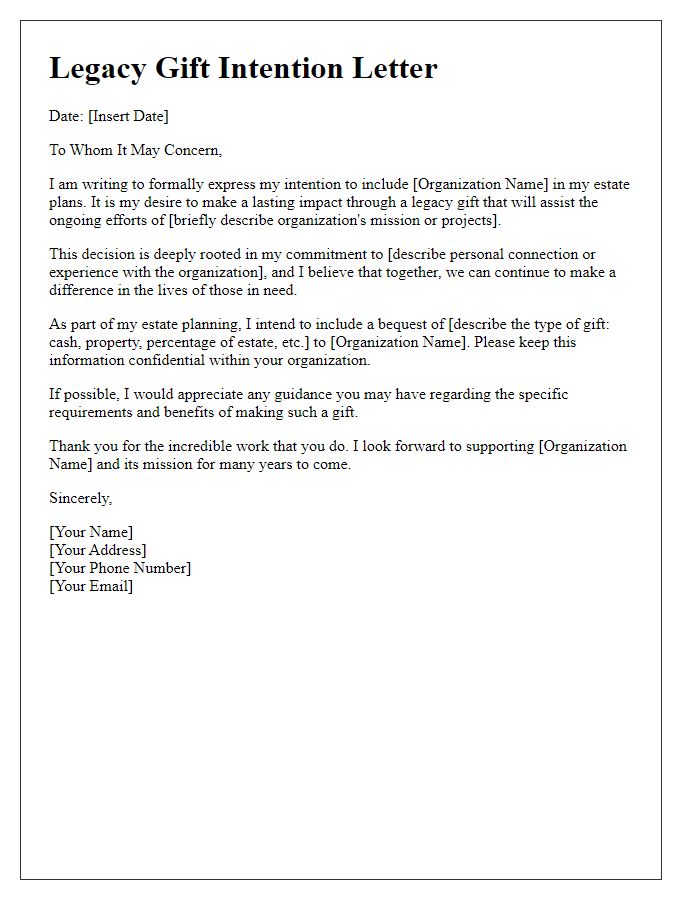


Comments